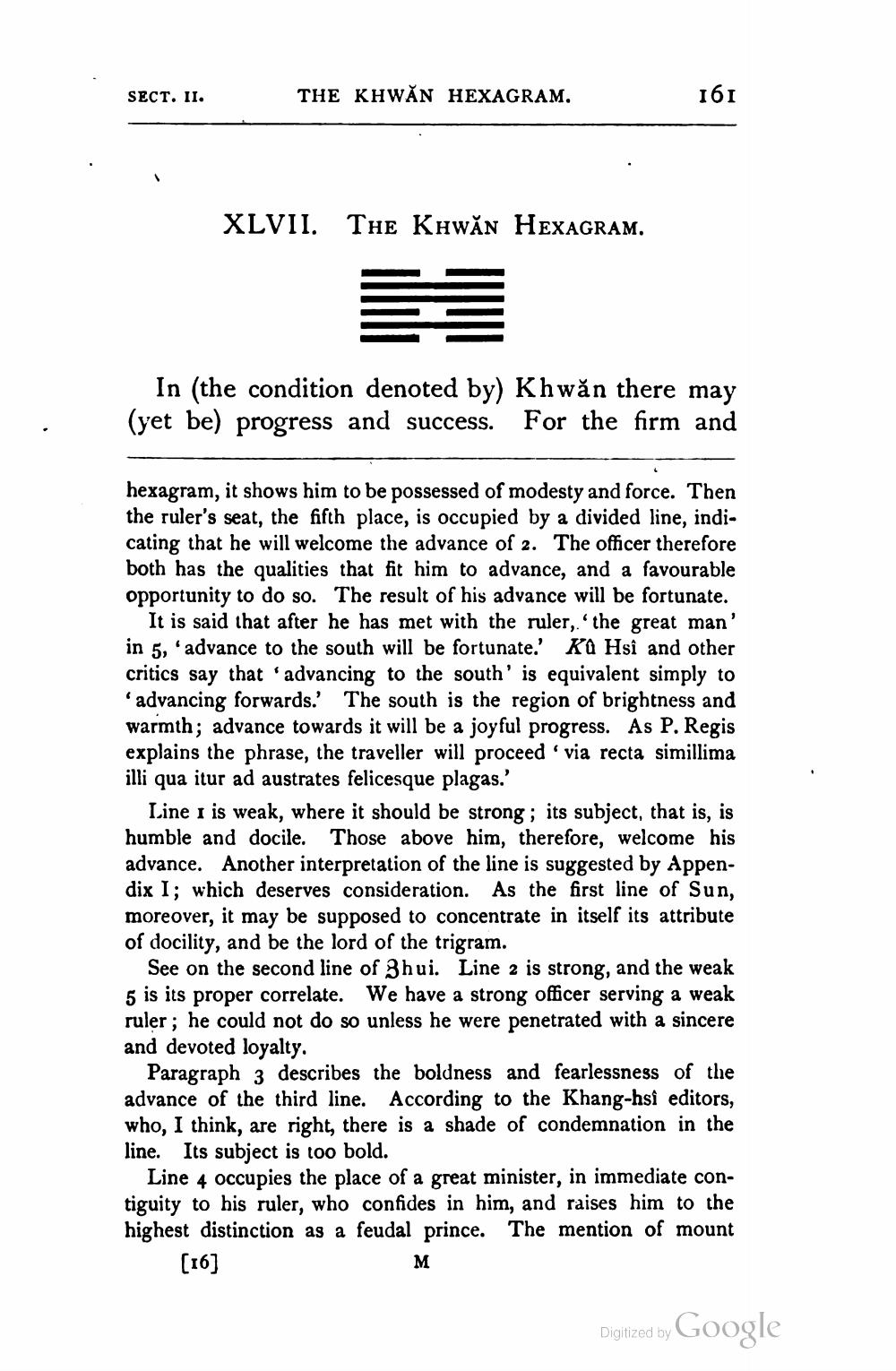________________
SECT. II.
THE KHWĂN HEXAGRAM.
16
XLVII. The Khwăn HEXAGRAM.
In (the condition denoted by) Khwăn there may (yet be) progress and success. For the firm and
hexagram, it shows him to be possessed of modesty and force. Then the ruler's seat, the fifth place, is occupied by a divided line, indicating that he will welcome the advance of 2. The officer therefore both has the qualities that fit him to advance, and a favourable opportunity to do so. The result of his advance will be fortunate.
It is said that after he has met with the ruler, the great man in 5, 'advance to the south will be fortunate.' Ka Hsî and other critics say that 'advancing to the south' is equivalent simply to 'advancing forwards.' The south is the region of brightness and warmth; advance towards it will be a joyful progress. As P. Regis explains the phrase, the traveller will proceed via recta simillima illi qua itur ad austrates felicesque plagas.'
Line 1 is weak, where it should be strong; its subject, that is, is humble and docile. Those above him, therefore, welcome his advance. Another interpretation of the line is suggested by Appendix I; which deserves consideration. As the first line of Sun, moreover, it may be supposed to concentrate in itself its attribute of docility, and be the lord of the trigram.
See on the second line of Zhui. Line 2 is strong, and the weak 5 is its proper correlate. We have a strong officer serving a weak ruler; he could not do so unless he were penetrated with a sincere and devoted loyalty.
Paragraph 3 describes the boldness and fearlessness of the advance of the third line. According to the Khang-hsi editors, who, I think, are right, there is a shade of condemnation in the line. Its subject is too bold.
Line 4 occupies the place of a great minister, in immediate contiguity to his ruler, who confides in him, and raises him to the highest distinction as a feudal prince. The mention of mount
[16]
Digitized by Google




